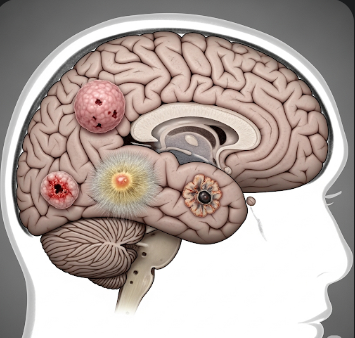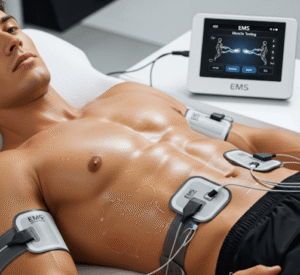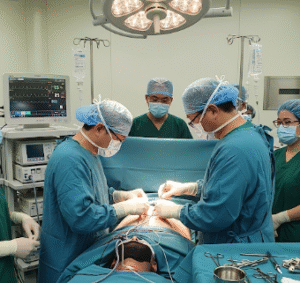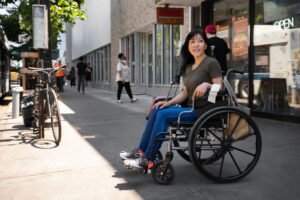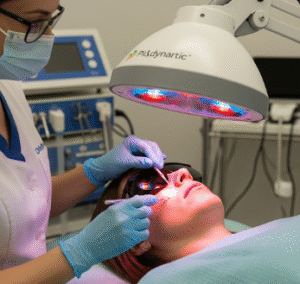Overview
Brain lesions refer to areas of abnormal tissue or damage in the brain, which can result from a variety of causes, including trauma, infections, tumors, stroke, or inflammatory conditions. Depending on their location, size, and cause, brain lesions may produce neurological symptoms ranging from mild cognitive changes to severe motor or sensory impairments.
In South Korea, neurology and neurosurgery centers provide advanced imaging, diagnosis, and treatment options for patients with brain lesions, offering both non-surgical and surgical approaches to optimize outcomes.
Key Facts
Highlights:
➡️ Brain lesions are localized areas of abnormal brain tissue detectable through imaging techniques like MRI or CT scans.
➡️ Symptoms vary widely depending on the lesion’s location and type.
➡️ Causes include trauma, tumors, infections, stroke, and autoimmune disorders.
➡️ Early diagnosis is critical to prevent progression and manage complications.
➡️ South Korea offers cutting-edge imaging, neurosurgical interventions, and rehabilitation programs for brain lesion management.
What is a Brain Lesion?
A brain lesion is an area of damage or abnormality within the brain tissue, which may involve the gray matter, white matter, or both.
Characteristics include:
- Localized or diffuse abnormal tissue seen on MRI, CT, or PET scans
- Can be benign or malignant, acute or chronic
- May affect motor, sensory, cognitive, or autonomic functions depending on its location
- Symptoms can develop gradually or suddenly
- May require neurological evaluation and monitoring to determine the underlying cause and treatment plan
Brain lesions are not a disease themselves but are signs of underlying neurological or systemic conditions.
What Symptoms are Related to Brain Lesions?
Symptoms can vary based on size, location, and type of lesion:
- Headaches, often persistent or worsening
- Seizures or convulsions
- Cognitive changes, including memory loss or confusion
- Motor deficits, such as weakness, tremors, or paralysis
- Sensory deficits, including numbness, tingling, or vision changes
- Speech or language difficulties
- Balance or coordination problems
- Personality or mood changes in certain cases
Highlights:
➡️ Symptoms are highly variable and depend on the brain region affected.
➡️ Sudden neurological deficits require urgent evaluation to rule out stroke or hemorrhage.
What Causes / Possible Causes of Brain Lesions?
Highlights:
➡️ Trauma: Head injuries can cause contusions, hematomas, or diffuse axonal injury.
➡️ Vascular Disorders: Stroke or aneurysm leading to ischemic or hemorrhagic lesions.
➡️ Tumors: Primary brain tumors or metastatic lesions from cancers elsewhere in the body.
➡️ Infections: Bacterial, viral, fungal, or parasitic infections such as encephalitis or abscesses.
➡️ Autoimmune and Inflammatory Disorders: Multiple sclerosis or autoimmune encephalitis can cause demyelinating lesions.
➡️ Metabolic and Toxic Causes: Exposure to toxins, certain drugs, or metabolic imbalances.
➡️ Congenital or Developmental Lesions: Arteriovenous malformations, cysts, or cortical malformations.
➡️ Mechanism: Brain lesions cause disruption of normal neural function either through direct tissue damage, inflammation, or pressure on surrounding structures.
When Should I See My Doctor?
Highlights:
➡️ If experiencing sudden neurological symptoms, such as weakness, numbness, speech difficulties, or vision changes.
➡️ Persistent or worsening headaches that do not respond to standard treatments.
➡️ Seizures or unexplained convulsions.
➡️ Cognitive, personality, or behavioral changes suggesting frontal or temporal lobe involvement.
➡️ Early neurological evaluation ensures timely diagnosis, reducing the risk of complications such as permanent neurological deficits or lesion growth.
Care and Treatment
Management depends on the type, size, location, and underlying cause of the brain lesion:
Highlights:
➡️ Observation and Monitoring: Small, benign lesions may be monitored with regular imaging.
➡️ Medications:
- Anti-seizure drugs for lesions causing seizures
- Steroids to reduce inflammation and swelling
- Antibiotics or antivirals for infection-related lesions
➡️ Surgical Interventions:
- Craniotomy for tumor removal or hematoma evacuation
- Minimally invasive procedures for abscess drainage or biopsy
➡️ Radiation Therapy: For malignant or inoperable tumors.
➡️ Chemotherapy: For certain brain tumors or metastatic lesions.
➡️ Rehabilitation Therapy: Physical, occupational, and speech therapy to restore lost functions.
➡️ Lifestyle and Supportive Care: Adequate nutrition, rest, and psychological support.
Treatment Options in Korea
South Korea provides advanced neurological care for brain lesions through multidisciplinary approaches:
Highlights:
➡️ Neurosurgery and Neurology Centers: Diagnosis, surgical intervention, and post-operative care.
➡️ Advanced Imaging: MRI, CT, PET, and functional MRI for precise lesion localization.
➡️ Oncology Services: Targeted therapy, chemotherapy, and radiotherapy for brain tumors.
➡️ Infectious Disease and Immunology Support: Management of abscesses and autoimmune lesions.
➡️ Rehabilitation Services: Physiotherapy, occupational therapy, and speech therapy programs.
➡️ Multidisciplinary Approach: Collaboration among neurosurgeons, neurologists, oncologists, and rehabilitation specialists.
➡️ Medical Tourism Support: Comprehensive evaluation, multilingual consultations, and follow-up care for international patients.

